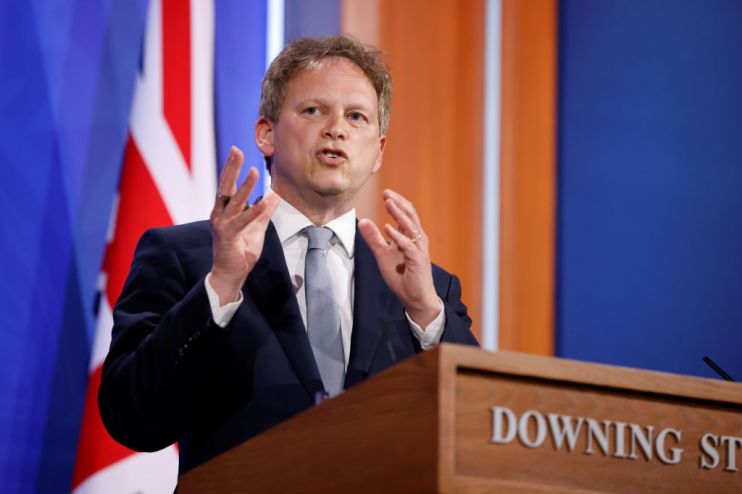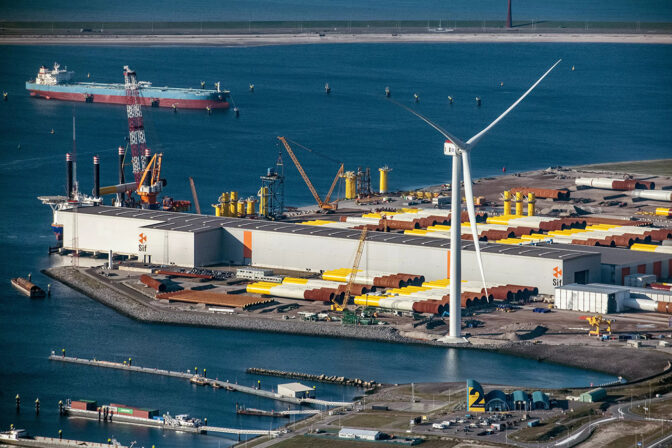MPs urge government to protect North Sea wind farms from Russian sabotage

The government must protect renewable energy assets in the North Sea such as wind turbines and undersea electricity cables from the threat of Russian sabotage, MPs have warned.
Angus MacNeil, SNP MP for Na h-Eileanan an Iar, and newly appointed chair of the energy security and net zero committee, told City A.M. this was especially relevant after the destruction of Nord Stream 2 last year.
He said: “Obviously, it is a concern that security could be under threat, given what happened to the Nord Stream pipeline in the Baltic Sea.”
Caroline Lucas, Green Party MP for Brighton Pavilion and member of the Environmental Audit Committee, praised the government’s latest energy commitments with EU allies – but warned this made the security of green infrastructure all the more important.
She said: “Our network of renewable technologies in the North Sea, from offshore wind farms to interconnector pipelines, is critical to delivering an abundant and affordable energy supply, and reducing our dependence on climate-wrecking oil and gas. I’m glad to see the government co-operating with the EU on this – now ministers must ensure that this vital infrastructure is protected.”
Tory backbenchers have also raised concerns over the potential vulnerability of wind turbines and transmission cables, which the UK will be increasingly dependent on for meeting its energy needs as it shifts from fossil fuel to renewable power.
Bob Seely, Conservative MP for the Isle of Wight, said: “In this day and age, with energy, electricity and internet supply critical to modern civilisations, we have got to be more mindful about how we monitor and protect these arteries of life. This includes working out how we can defend them from sabotage and destruction, and to make sure we have enough of them should some be targeted.”
Henry Smith, Conservative MP for Crawley added: “Energy security doesn’t just mean greater self-reliance on its generation but also protection of those assets from potential hostile attack. It’s imperative that the government is proactive ensuring such security in all forms.”

Russia threat looms as UK backs wind power
The UK is a global leader in offshore wind turbines– which are considered essential for the country’s energy security as it looks to reduce its reliance on overseas vendors.
The world’s four largest offshore wind farms operate in British waters, alongside the world’s biggest development, Dogger Bank – which will be home to 4.8GW of power.
However, the potential threat these turbines face was made apparent this week in a new documentary investigation which revealed Russia has been mapping key infrastructure in the North Sea with underwater surveillance equipment.
The programme, funded by public television services in Denmark, Norway, Sweden and Finland, focuses on a Russian vessel called the Admiral Vladimirsky – an underwater research vessel it alleges is a Russian spy ship.
The ship was filmed moving within the vicinity of seven wind farms off the coast of the UK and the Netherlands on one mission, loitering in the area.

The reports comes as energy secretary Grant Shapps doubles down on North Sea wind power.
He has joined forces with eight other North Sea countries to ramp up renewable energy generation and bolster the continent’s security of supplies following Russia’s invasion of Ukraine.
The group is targeting an eightfold increase in electricity generation over the next three decades, powered from massive “turbine islands” built at sea – consisting of connected renewable generation sites.
This would mean a combined 120GW of North Sea offshore wind capacity by 2030, and 300GW by 2050, more than quadrupling the current 25GW across the region.
The target is alongside the UK’s own ambition of reaching 50GW of domestic generation by the end of the decade – as outlined in the energy security strategy.
The UK has also unveiled plans for Europe’s biggest cross-border electricity link with Netherlands, connected to an offshore wind farm.

Industry body Renewable UK confirmed that its members “treat the security of its projects as a matter of the highest priority” and that companies always work with the “authorities to ensure that we have robust measures in place to provide the highest levels of safety and protection.”
Trade association Offshore Energy UK told City A.M. “the physical security of offshore and onshore energy infrastructure” remains a key part of its regular briefings with the government, Police Scotland and the North Sea Transition Authority.
When approached for comment, a government spokesperson said: “Our priority will always be maintaining our national security. That is why we increased Royal Navy presence patrols after the Nord Stream incident and have invested £65m in the first of our two Multi-Role Ocean Surveillance ships.”